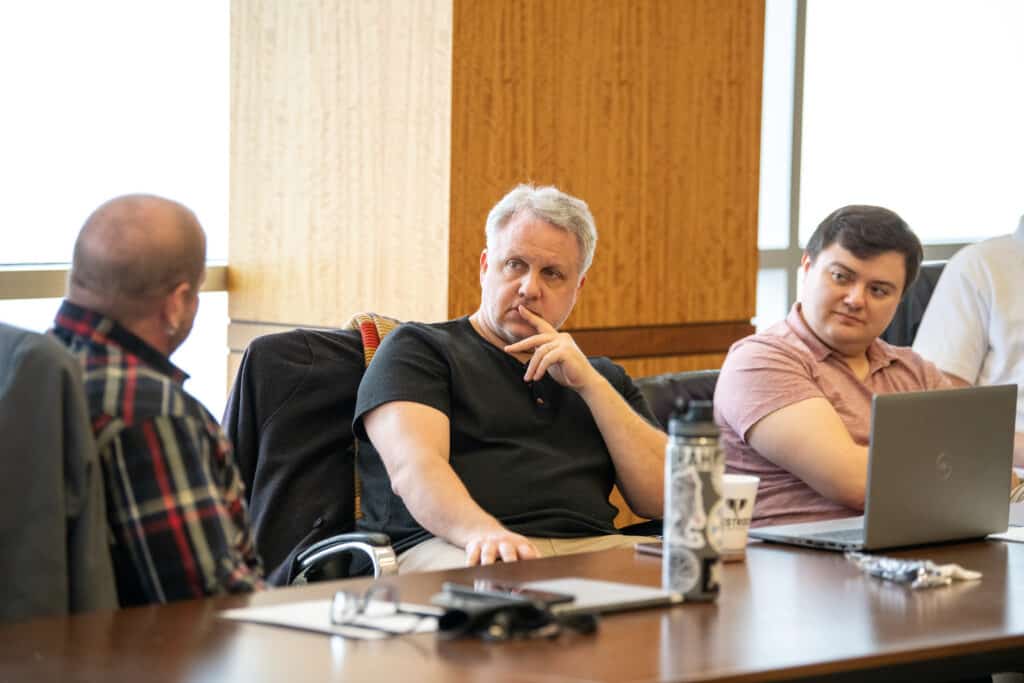
Drug addiction is a serious problem, not just in Arkansas but throughout the entire United States.
Approximately 50 percent of Americans over the age of 12 admitted to some form of illicit drug use in 2020. According to the 2022 National Healthcare Quality and Disparities Report, illicit drug use costs the U.S. $400 billion each year in expenditures related to crime, lost work productivity and health care.
Solving this country’s drug addiction program will not be easy and will rely on informed researchers producing effective strategies designed to not only halt the ongoing wave of addiction but prevent it from increasing its grasp on the nation. This is the goal of the National Institute on Drug Abuse’s Institutional Research Training Grant (T32), the only one of its kind at UAMS. Initially funded in 2009, the “Translational Training In Addiction” program utilizes a cross-sectional approach to training the next generation of addiction research scientists.
The UAMS Addiction Research Training Program involves several UAMS collectives — the Psychiatric Research Institute, Biomedical Informatics, Clinical and Translational Sciences, Graduate Program in Interdisciplinary Biomedical Sciences, Health Behavior and Health Education, and Pharmaceutical Evaluation and Policy. Representatives from each group are serving as mentors for a group of researchers from varied backgrounds, the goal being to utilize a combined academic and non-academic workforce to assist young minds reach their potential. By design, the program represents an opportunity for young researchers to gain experience in hands-on substance abuse research, both formally in didactic, laboratory, and mentored environments so that they can in turn give back.
Melissa Zielinski, Ph.D., and William Fantegrossi, Ph.D., are the co-directors of the NIDA Institutional Research Training Grant, which is in its 15th year of funding. The competing renewal application for the UAMS NIDA T32 Training Program was submitted in 2023 and received an outstanding priority score.
The objectives of the UAMS Addiction Research Training Program are:
- foster a shared knowledge of the broad societal and health impacts of drug use disorders, and of the diversity of engaged scientific disciplines
- provide an individualized path to diverse addiction impact career areas and maximize post-training outcomes
- foster diversity as a strength for maximizing program impact
- provide career building environments emphasizing interdisciplinary, team science, and translational research
- innovate advances in training approaches to research ethics, professional development, and program connectivity
- enhance awareness of and impact on translational outcomes
- evaluate both bibliometric and translational science benefit outcomes of the program,
- foster the engagement of physicians and other clinicians in the career building processes of the program.
